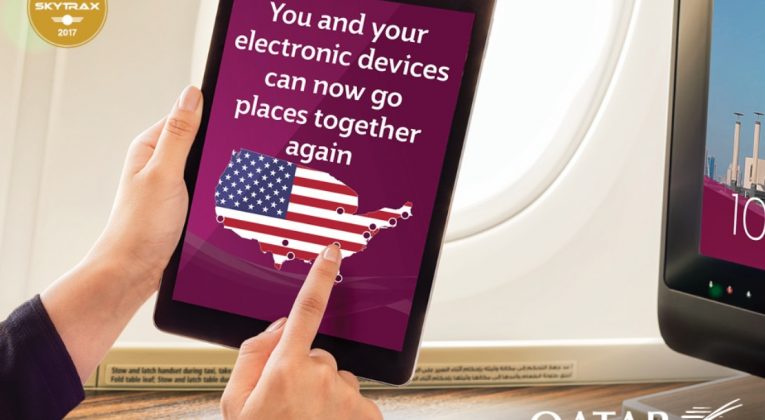Remember the laptop ban? Or better still, forget it!
Today, Qatar Airways announced it had been approved by the U.S. Department of Homeland Security to allow passengers to resume carrying onboard their personal electronics devices when flying to the U.S. from the carrier’s Doha hub at Hamad International Airport.
Qatar is the fourth airline to receive the DHS’s blessings to allow U.S.-bound flyers to bring their laptops and other devices with them into the passenger cabin. The three carriers already approved include Abu Dhabi-based Etihad, Dubai-based Emirates, and Istanbul-based Turkish Airlines.
The ban, initially covering nonstop flights to the U.S. from 10 Middle East airports, was imposed in March, presumably in response to intelligence suggesting that terrorists planned to hide explosives in the personal electronics devices of flyers traveling to the U.S.
Related:
The ban remains in place for nonstop flights to the U.S. from six airports: Amman, Jordan; Kuwait City; Cairo; Jeddah and Riyadh, Saudi Arabia; and Casablanca, Morocco.
Although as yet unconfirmed by U.S. security officials, Saudia, the flag carrier of Saudi Arabia, said it expects Jeddah and Riyadh to meet DHS screening standards and be excluded from the ban “on or before July 19.”
The ban itself remains the object of considerable controversy, with critics lambasting the policy as neither necessary nor effective. In particular, it’s been pointed out that terrorists can easily avoid the ban by utilizing connecting flight to the U.S., rather than flying on the restricted nonstops.
With the affected airlines and airports rushing to upgrade their security screening to meet DHS requirements, the controversy and the criticism may soon be moot. Which means more comfort and convenience, if not more security.
After 20 years working in the travel industry, and almost that long writing about it, Tim Winship knows a thing or two about travel. Follow him on Twitter @twinship.
This article first appeared on SmarterTravel.com, where Tim is Editor-at-Large.


